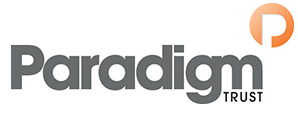Our new special school – feature in Ipswich Star
Today the Ipswich Star featured the new special school that Paradigm Trust is planning to open in 2022, Woodbridge Road Academy. You can read the article here:
How Hinterland builds Cultural Capital for children at Paradigm Trust – and why it’s important
Paradigm Trust’s pioneering Hinterland programme is providing cultural capital for its pupils so they can enjoy a richer life experience and improve their learning.

Cultural capital has existed as a phrase and a concept for decades, but was introduced by Ofsted into its framework in September 2019. The new documentation requires educational settings to provide their learners with “the knowledge and cultural capital they need to succeed in life.” While this has led to much discussion around what cultural capital actually is, this new aspect to the framework has dovetailed smoothly with work Paradigm Trust has already been doing for years.
The amount of cultural capital a child has can impact how much they get from their lessons at school. Due to differing circumstances and backgrounds, children inevitably come to the classroom with disparate life experiences. For instance, some pupils may have been to the seaside, while others will never have visited the coast. If then, in an English lesson the class reads a story set by the sea such as The Lighthouse Keeper’s Cat, everyone can understand it and answer questions on it to some extent, but the children who have actually been to the coast are able to relate far more readily and enjoy a richer experience than those who haven’t.
Traditionally, experiences such as these would have been accumulated by pupils in a rather haphazard way, with some children having many more such experiences than others due to their family background and related factors. Paradigm is committed to levelling this playing field, ensuring all pupils have access to high quality experiences. It does this through the Trust’s Hinterland programme, which it has designed not only to increase cultural capital in its pupils, but academic capital (the knowledge which supports new learning) and character capital (the knowledge which lets you engage with the world).

For Hinterland, Paradigm has developed a curriculum of thought-through systematic experiences which it expects every child from Early Years to the end of Y11 to benefit from. These include going to the seaside, the zoo, having a picnic, residential trips, museum trips, visiting backstage at a theatre, taking part in plays and other activities which prove beneficial to children’s learning. The activity is then brought back to the classroom and the teachers spend a lot of time unpacking and exploring it to ensure maximum value is drawn out of every experience.
As an example, a Hinterland trip may take a group of children to the National History Museum in London. This fulfils the criteria for academic Hinterland as it would fit with core science content, and teachers could discuss stories about influential scientists such as Darwin and Hooker, the work of Victorian philanthropists or the steel structure of the building. The cultural aspect would be drawn out through a discussion on the purpose of museums, who pays for them, who owns the exhibits, are they ethical? Finally, the character Hinterland is developed by taking the children through how they should behave in a museum, what can (and can’t) they touch, how do they talk about their experiences?

Paradigm operates schools in both London and Ipswich but makes sure all pupils are able to access very similar experiences, regardless of where they live, even to the extent of subsidising travel costs when London pupils need to travel to Ipswich, or vice versa.
The emphasis with Hinterland is quality over quantity – it is far better to choose the right visits and get the most out of them than take the children on lots of visits which have little value. Any time out of the classroom must be shown to be effective and worthwhile for the child’s education before it is agreed.
Because of Hinterland, and the knowledge-rich curriculum Paradigm has created and uses, the introduction of cultural capital in 2019 within the Ofsted framework changed very little at the Trust. The practice of building up a child’s store of experiences to improve their learning has been ingrained across all the schools for many years anyway, so while it was a new requirement on the framework, it was a concept which had existed for many years at Paradigm. By running the Hinterland programme Paradigm is working hard to ensure no child is disadvantaged in their education. In this way, the Trust is able to broaden children’s life experiences and help prepare them for future study, employment and, most importantly, leading a fulfilling life.
Murrayfield Primary Academy appoints Claire Willis as permanent Principal
Claire Willis, currently interim principal of Murrayfield Primary Academy in Ipswich, has been confirmed as the permanent principal with immediate effect.
Claire became interim principal in January 2021 following the departure of the then principal Neil Winn. Since then, Claire has worked hard to continue improving the teaching and results in the school to deliver the outstanding education that every child deserves.
As a Trust, we pass on our congratulations to Claire as she continues to lead the school. Murrayfield is in a strong position and we have every confidence that Claire will ensure that the school continues to develop and flourish.
